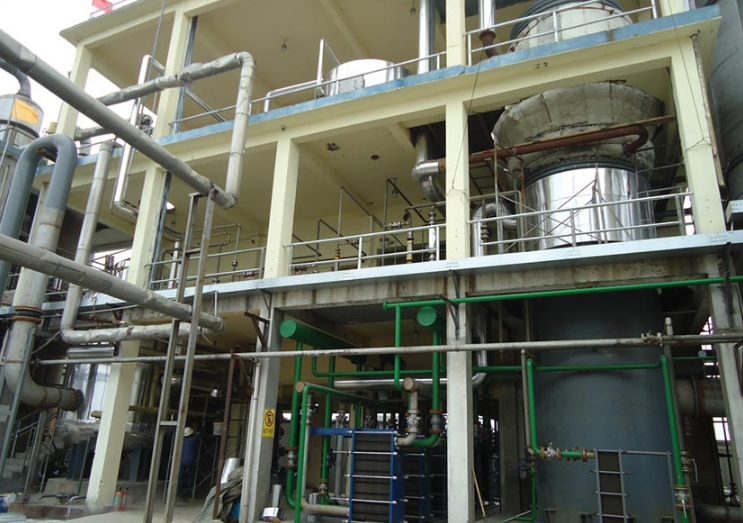Formaldehyde is a colorless, flammable gas with a very strong odor at room temperature. It is produced as a byproduct of combustion and similar natural processes, thus found in emissions from unvented fuel-burning appliances like gas stoves or kerosene space heaters. However, the most common source of formaldehyde you've probably encountered is cigarette smoke. Despite its unappealing nature, formaldehyde has proven beneficial as a preservative or disinfectant. Let's delve deeper and explore the agricultural applications of formaldehyde.
Disinfectants
Formaldehyde has proven to be an effective industrial disinfectant, catching the attention of poultry farmers. In the poultry industry, formaldehyde is commonly used to thoroughly sanitize and disinfect brooder houses, hatcheries, and hatchery vehicles. It effectively eliminates bacteria and mold, ensuring the safety of poultry from diseases.
Formaldehyde exhibits potent biocidal properties, rendering it invaluable in soil sterilization procedures. By effectively eradicating harmful pathogens and pests, formaldehyde ensures the creation of a conducive environment for seed germination and plant growth. The controlled application of formaldehyde aids in eliminating detrimental microorganisms, thereby bolstering soil health and fertility.
When dissolved in water, formaldehyde becomes formalin. This is beneficial in cattle care, as it enables farmers to create a footbath that maintains the hygiene of their cows, reducing the risk of common hoof diseases that often afflict dairy cows.
Fertilizer
Thanks to formaldehyde manufacturers, farmers have been able to incorporate formaldehyde into their fertilizer and improve the overall quality of their soil. Fertilizer that incorporates formaldehyde slowly releases nitrogen over time, which is necessary for plant growth, allowing for faster germination and thus greater growth in crops. Furthermore, formaldehyde concentrates have been used in fertilizer to protect plants and control afflictions such as potato disease.

Pesticides
Apart from its effectiveness as a disinfectant, formaldehyde finds its way into agricultural applications as an ingredient in pesticides. These pesticides are utilized to eradicate insect infestations that pose a threat to crops. Additionally, similar to its efficiency in combating mold, formaldehyde pesticides prove effective in eliminating invasive fungi attempting to colonize farms. What sets formaldehyde apart as a valuable fungicide is its ability to efficiently eliminate fungal spores, preventing their spread and regrowth.
Fumigation
Formaldehyde's fumigant properties make it a potent weapon in the arsenal against pest infestations. Fumigation with formaldehyde eradicates a spectrum of pests, including insects, nematodes, and fungi, without leaving harmful residues. This eco-friendly approach to pest control ensures minimal environmental impact while safeguarding agricultural yields from debilitating infestations.
Grain Protection
In the realm of grain storage, formaldehyde emerges as a reliable ally in grain protection. Its application in fumigation chambers or sealed silos effectively eliminates stored-product pests, such as weevils and beetles, safeguarding grain quality and quantity. Formaldehyde fumigation serves as a proactive measure against post-harvest losses, preserving grain for both domestic consumption and international trade.
Agricultural Equipment Disinfection
Machinery Sterilization
The disinfection of agricultural equipment is paramount to prevent the spread of pathogens and contaminants. Formaldehyde-based sterilization protocols ensure the thorough decontamination of machinery, including tractors, harvesters, and irrigation systems. By maintaining equipment hygiene, formaldehyde mitigates the risk of cross-contamination and disease transmission, thereby safeguarding crop yields and agricultural sustainability.
Greenhouse Sanitization
Greenhouses represent controlled environments conducive to plant growth, yet they are susceptible to microbial proliferation. Formaldehyde's efficacy as a greenhouse sanitizer stems from its ability to neutralize pathogens and mold spores, creating a sterile environment for optimal plant development. Regular formaldehyde treatments mitigate the risk of disease outbreaks, fostering healthy plant growth and maximizing yield potential.
Conclusion
In conclusion, the agricultural applications of formaldehyde epitomize its versatility and efficacy as a tool for enhancing productivity and sustainability. From soil sterilization to pest control and equipment disinfection, formaldehyde plays a pivotal role in safeguarding agricultural operations and ensuring food security. Embracing formaldehyde-based solutions underscores a commitment to agricultural excellence and environmental stewardship.
















